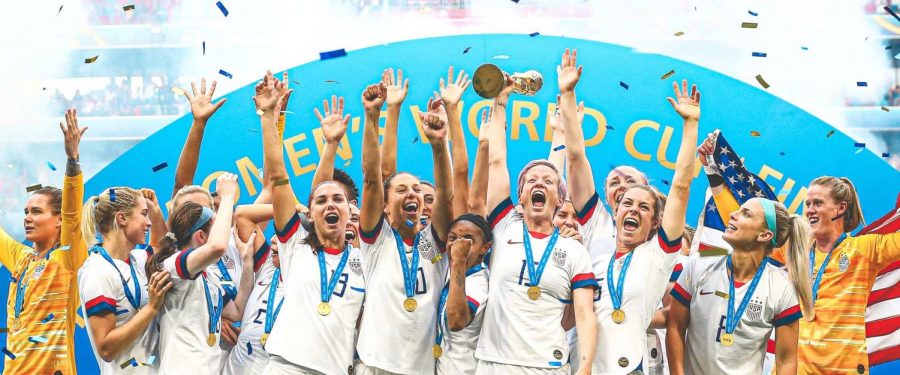Op-Ed: Women Athletes Deserve Equal Pay
When you look at high school, college, and professional sports, one thing is obvious: media coverage, funding, and attention are disproportionately given to men.
It’s odd that so little is being done to change this. Simply put, women deserve not only the same opportunities but the same respect as men in the athletic world.
Only two-percent of airtime on ESPN’s “SportsCenter” is given to women’s sports, and stories about women’s sports tend to be half as long as those about men’s sports, according to USC News.
Despite Title IX, the law that mandates equal sports opportunities for both sexes, women in both college and professional athletics have to fight to get a fraction of the respect and recognition given to male athletes.
Take tennis star Serena Williams: she is still subject to childishly sexist treatment on multiple levels. Think about this: John McEnroe, a former U.S. tennis player, recently claimed in Rolling Stone that Williams would not even be a “top 700 player” if she was a man. This is not just untrue, but disrespectful to Williams and all female athletes, at any level.
Worse, sometimes this sexism comes straight from the governing body of said sport. On September 7, an NCAA D1 field hockey game between the University of Maine and Temple University, held at Kent State, was called off early and declared no contest.
Why?
So Kent State Football could shoot off fireworks as part of their pregame festivities.
Fireworks.
No men’s NCAA D1 game would have ever be cancelled in the second overtime period to allow another team’s nonessential pregame fireworks. It doesn’t seem too much to ask that two D1 teams be allowed to play their game to the end — but apparently it is.
“This is just hopefully an opportunity to recognize that there is an importance to have this equality in general in sports regardless of revenue programs or not,” said Temple Owls Coach Susan Ciufo when interviewed by CNN. “We’re not asking for a lot for female sports, but just some respect could go a long way.”
This treatment is nothing new to female athletes, and a lack of respect for female sports is not just an issue in the NCAA. The U.S. Women’s National Soccer team has won four of the eight FIFA Women’s World Cups held since 1991, and has always placed in the top three teams, according to FIFA. This makes them one of the winningest teams in professional soccer.
Conversely, in the 21 FIFA Men’s World Cups held since 1930, the U.S Men’s team has never won, and has only placed in the top three once.
Given these statistics it would seem reasonable that, as the more successful team, the women get treated as such.
Apparently, this is also too much to ask.
As of 2019, according to CNBC, the women earned $260,000 each for winning a World Cup, compared to the $1.1 million that would be earned by the men’s team for a hypothetical world cup win.
That’s right: one of FIFA’s winningest teams ever deserves, according to the organization governing the sport, a quarter of the pay of their considerably less-successful male counterparts.
This may trigger a common counter argument, that male athletes should be paid more because they generate more revenue. I’ve heard it.
In reality, after their 2015 World Cup win, the women generated three times the revenue men did that same season, FIFA reported.
The sports world has, despite all the above statistics, become much more equal since the passage of Title IX. In 1972, the year the law was passed, only 295,000 girls nationwide played high school sports compared to 3.67 million boys. As of 2011, 3.2 million girls were on fields, tracks, and courts at high schools around the country.
This is major progress and it’s something to be proud of. Sports are just as beneficial for girls as for boys, and it’s only fair that everyone who wants the opportunity to join a team should have it. However, we have lots of progress yet to make.
Hollis is new post-grad to Williston this year, she has really enjoyed her transition into the Williston community. Hollis loved how she can learn about...










